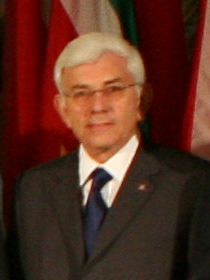A Quote by Gus Van Sant
When I grew up in the '60s, we were actually dominated by this, you know, sort of conforming '50s culture, even though we were like trying to express our own culture, like, the dominant culture was the thing that was forming us. And I think that that's true today.
Related Quotes
Many teachers of the Sixties generation said "We will steal your children", and they did. A significant part of America has converted to the ideas of the 1960s - hedonism, self-indulgence and consumerism. For half of all Americans today, the Woodstock culture of the Sixties is the culture they grew up with - their traditional culture. For them, Judeo-Christian culture is outside the mainstream now. The counter-culture has become the dominant culture, and the former culture a dissident culture - something that is far out, and 'extreme'.
All of us somehow felt that the next battleground was going to be culture. We all felt somehow that our culture had been stolen from us-by commercial forces, by advertising agencies, by TV broadcasters. It felt like we were no longer singing our songs and telling stories, and generating our culture from the bottom up, but now we were somehow being spoon-fed this commercial culture top down.
I was on television a couple of years ago and the reporter asked me, "How does it feel being on mainstream media? It's not often poets get on mainstream media." I said, "Well I think you're the dominant media, the dominant culture, but you're not the mainstream media. The mainstream media is still the high culture of intellectuals: writers, readers, editors, librarians, professors, artists, art critics, poets, novelists, and people who think. They are the mainstream culture, even though you may be the dominant culture."
Things can change if the military can do a paradigm shift and gets out of the shame and coverup cycle and be a leader in our culture. In the 50s, 60s and 70s there were huge race problems in the military even more severe than the culture at large. The military saw it was detrimental and it changed and became a model to society at large.
The information that was contained in a cathedral was based upon a common culture - a common Christian culture - and the elements were chosen for a common symbolic meaning. Someone who knew everything that was represented in a cathedral had a sort of encyclopedia - you can indeed call it that - but it was a selective encyclopedia, like encyclopedias back when they were books and the people writing them were supposed to be specialists in their field. I think today the problem is that people don't know how to choose between different kinds of information.
Happiness is not like we were walking around fingering razor blades or anything like that. But it just sort of seems as if - we sort of knew how happy our parents were, and we would compare our lives with our parents and see that, at least on the surface or according to the criteria that the culture lays down for a successful, happy life, we were actually doing better than a lot of them were.
One of the things I recognized early on, doing whatever studies of black history I have, is that even though black folks were transported as slaves, into servitude, when they were carried out of Africa they left empty-handed, but they didn't leave empty-headed. They carried with them the culture they knew, the culture they had, and that culture reconstituted itself in all the places they went.
My interest in culture generally is a comparative one, and I think that's where the word joy, I think, can be applicable. There's joy in actually seeing the relatedness, the connectedness of different cultures or recognising, for instance, your own culture in another or another culture in your own culture and feeling an air to all of them.





































